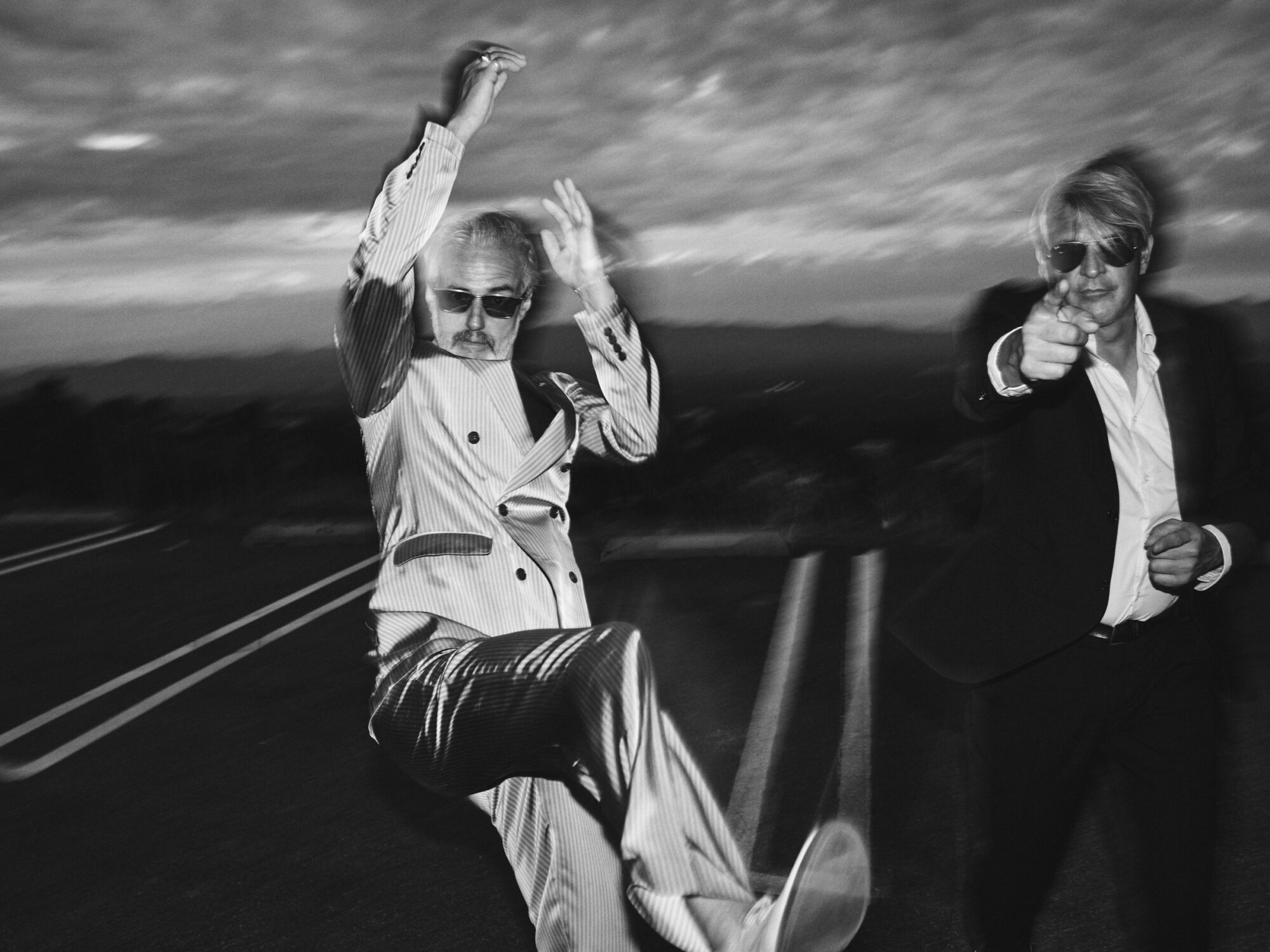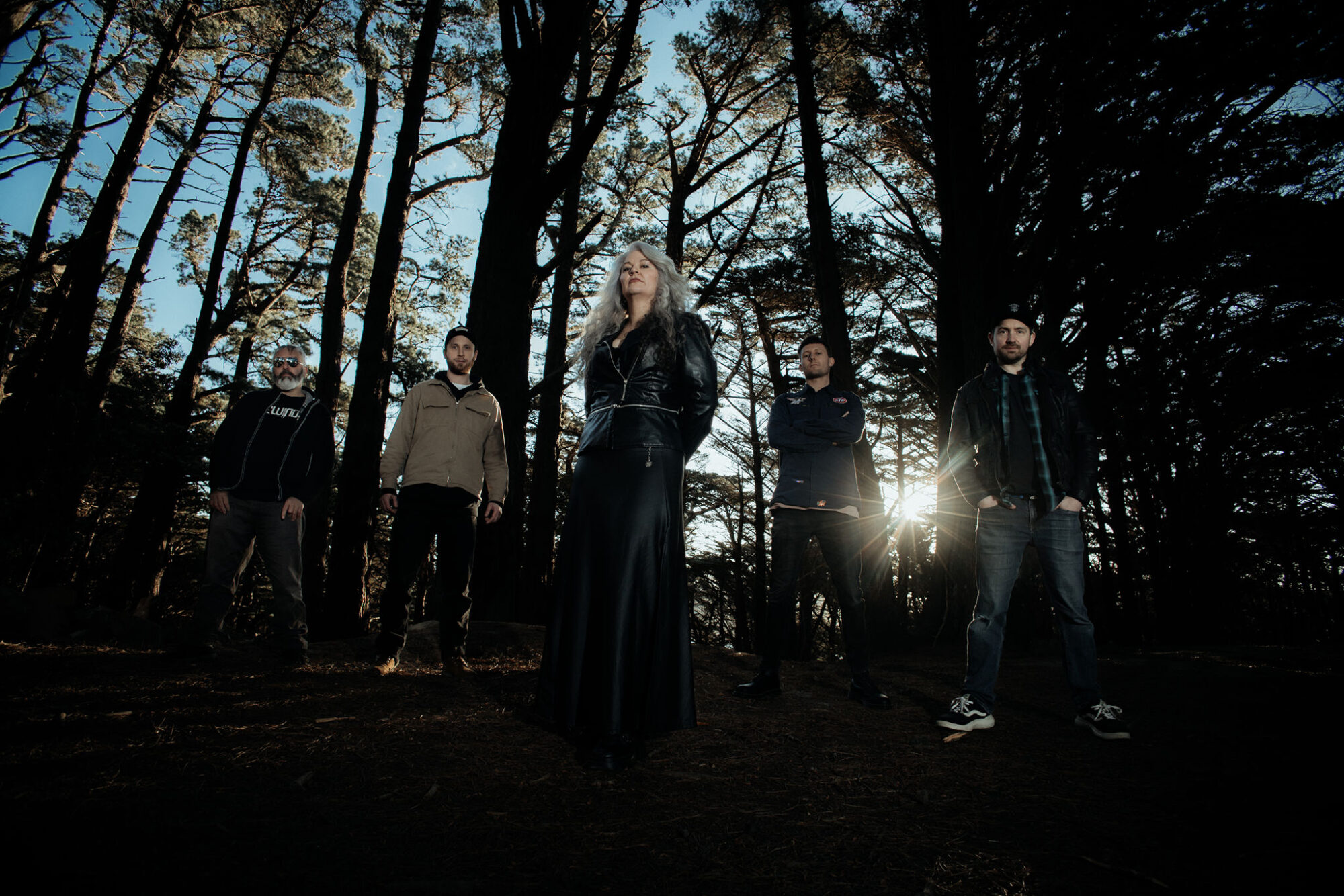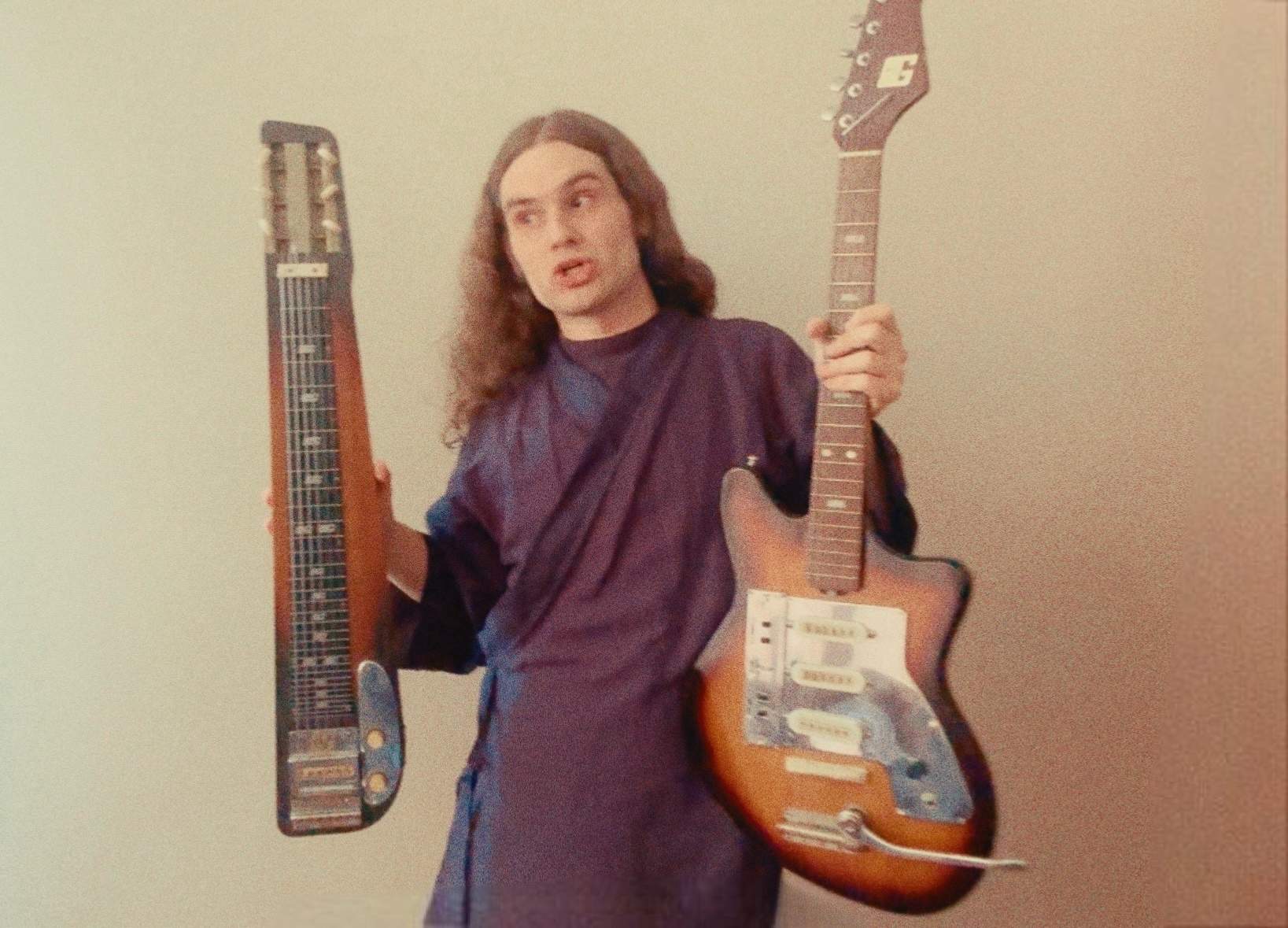Dün interview
Dün was a French progressive rock band, active from 1978 to 1981, during which they played shows with Magma, Art Zoyd, Etron Fou Leloublan, and other Rock In Opposition bands. Their only album is entitled ‘Eros’ and it’s a masterpiece.
Where and when did you grow up? Was music a big part of your family life?
Laurent Bertaud: I was born in Nantes in 1959 and moved to Paris when I was 25.
Jean Geerearts: I grew up in Mulhouse between 1953 and 1970. Yes, music was a big part of our family.
Bruno Sabathe: There was a piano in the family apartment and another one in the holiday home. My father played piano (not very well) with his friends. My older sister took classical piano lessons at home. Anyway, my environment was very musical.
Thierry Tranchant: I grow up in different towns in the west of France. The music was a small part of the family life.
Pascal Vandenbulcke: I grew up in Chateaubriant (near Nantes, West of France) between 1958 and 1975. The only music the family listened to were the French variety and the musette accordion.
When did you begin playing music? What was your first instrument? Who were your major influences?
Laurent Bertaud: Yes, my grandmother was a piano teacher, and my parents (especially my mother) were listening to music every day, from classical to English pop, as well as the Beatles or Black Sabbath (I’m not kidding!). My grandmother taught me piano from when I was 6 to 8 years old. Unfortunately she died when I was 8. I played piano, but soon the main instrument became the drums. Magma, Stravinsky and Zappa influenced me the most.
Thierry Tranchant: My parents cared only for studies and sport. No time for the music. As a child I wanted to learn music, but fortunately, I could at least listen to it. At 18 I started to play bass guitar. My major influences were Jannick Top (Magma), Bernard Paganotti (Magma), Henry Cow, Gong, Mahavisnu Orchestra and Art Zoyd. I decided to play on a fretless bass after seeing Thierry Zaboitzeff on a show with Art Zoyd. It was the first time I seen somebody playing fretless bass. He used a short scale bass with a plectrum, tuned as a cello. I play on a long scale with fingers, tuned like traditional bass guitar, but I have discovered through him all the possibilities of a fretless bass. Jaco Pastorius is also important to me, but I discovered him after I decided to play fretless bass. Listening to him was a big shock and it still is!
Pascal Vandenbulcke: When I was 12, my father asked me if I want to learn the accordion. I obviously accepted. I started the flute at the age of 14 on the recommendation of the principal of the small music school where I learned music theory, to be part of the municipal harmony that played for the official ceremonies and the Christmas concert. My new influences were military anthems and arrangements of classical music for harmony orchestra. Later, I discovered the Beatles and bands like Gong, Jethro Tull, King Crimson and many others. And the discovery of classical music at the Conservatoire de Nantes, with courses in composition, analysis and organology.
Bruno Sabathe: I started classical piano at age 7 (for 12 years) until I was 19. Around the age of 13, I discovered that I could easily play Ray Charles’ ‘What’d I Say’. So, the doors to rock music half-opened. Then, in 1968, the discovery of the ‘Miles In The Sky’ album opened many new doors.
Jean Geerearts: When I was 10 years old I started to play guitar, then at the Mulhouse Conservatory in 1965. I was influenced by Stravinsky, Henri Dutilleux, classic jazz and Weather Report.
What bands were you a member of prior to the formation of Dün?
Laurent Bertaud: I was playing drums with KanDaar, an unknown band of young teenagers and with different dance orchestras around Nantes to get some money!
Thierry Tranchant: Several bands in the college, not serious. Before Dün, my first serious band was, a band where different future musicians of Dün played (Laurent and Pascal).
Pascal Vandenbulcke: Like Thierry and Laurent, the KanDaar band.
Bruno Sabathe: Before Dün, I played in dance orchestras because disc jockeys didn’t exist yet. So I learned to make people dance on all kinds of styles: from charleston to tango, from biguine to rock’n roll, from paso-doble to slow series, from waltz to disco.
Jean Geerearts: No.
“It was very interesting to learn the language and the logic of the other musicians, and find a common way to work and play together.”
Can you elaborate the formation of Dün?
Dün [Answer of the band]: The band on ‘Eroc’ album consisted of: Laurent Bertaud on drums, Jean Geerearts on guitar, Bruno Sabathe on keyboards, Alain Termol on percussions (xylophone, vibraphone, timbales, etc), Thierry Tranchant on bass and Pascal Vandenbulcke on flutes.
The beginning: Pascal, Laurent and me, Thierry played in a band together and we recently decided to stop. Jean arrived from Paris. We met him during a jam session in a college in Nantes. Immediately, we decided to form a new band. We called Bruno Sabathe for the keyboards and Philippe Portejoiefor for sax. Philippe left the band some months later to start a soloist career in the contemporary music. Alain, a classical percussionist, friend of some of us then joined the band. We were coming from totally different musical universes, some from classical music, some from jazz or blues or rock. It was very interesting to learn the language and the logic of the other musicians, and find a common way to work and play together.
How important was Magma for you? What can you tell us about the concept behind Dün?
Dün: Magma was a major influence. Magma was influenced by the same composers as us; Stravinsky, Bartok, etc. The vision of Magma about the rhythm, the repetitive sequences is a major influence on us. We prefer the band virtuosity before the individual performances. That included for example: the solo of drums and percussions, a two musician’s performance. We love also complex harmonies on powerful rhythm sections, and complex rhythm and bars. We love dissonances but also beautiful and peaceful sequences. Jean and Pascal were the composers. Together, we finalize the songs changing the structure, add parts and/or change sheets, to reach a perfect song. During the creation part any stupid idea, sorry any strange idea, is tried with enthusiasm.
What else influenced the band’s sound?
Dün: Bartok, Stravinsky, Varese, etc. We were also influenced by Magma, King Crimson, Art Zoyd, Henry Cow, Weather Report, Zappa, Mahavishnu Orchestra, Miles Davis, and others.
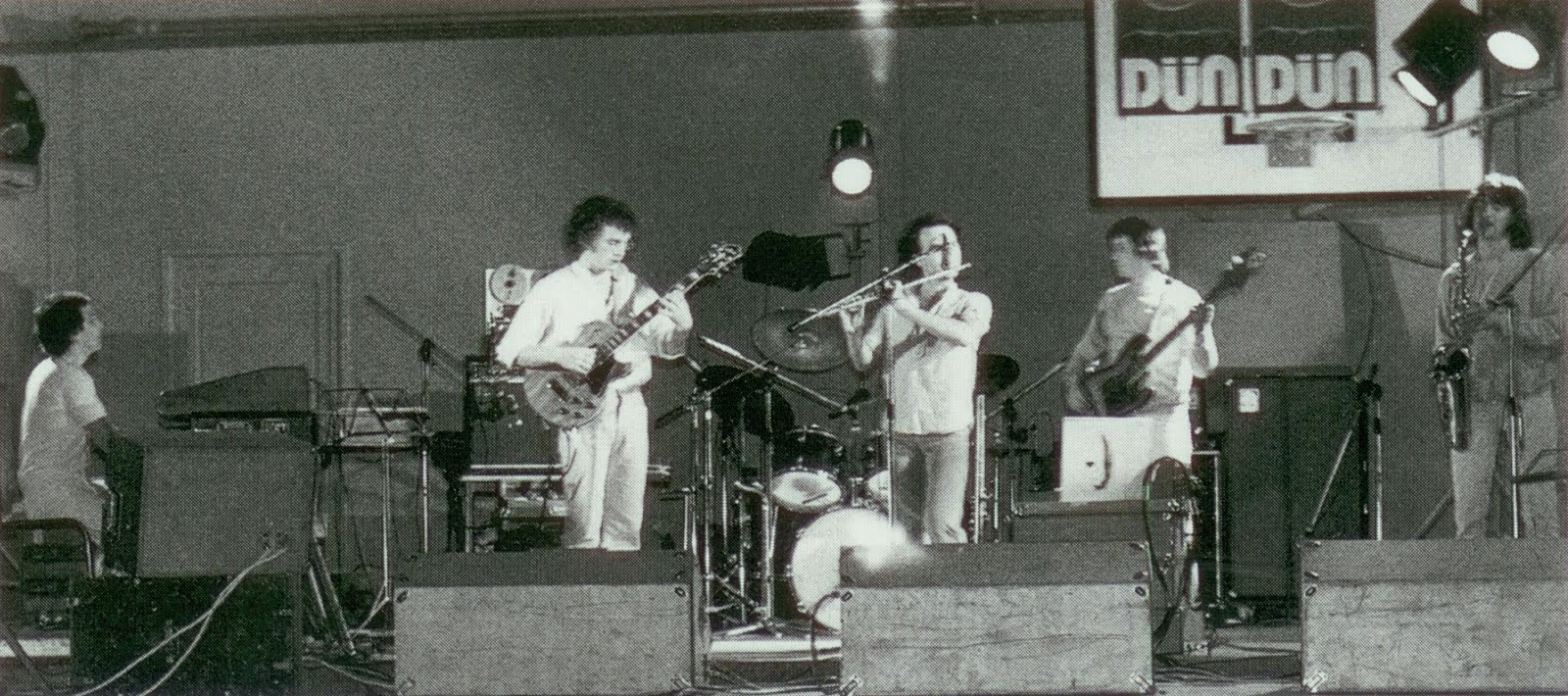
How did you decide to use the name “Dün”?
Dün: We are big fans of ‘Dune’, a novel by Franck Herbert. We preferred naming us “Dün” over “Dune”. That spelling kind of represent our music.
What’s the story behind ‘Eros’? Where did you record it? What kind of equipment did you use and who was the producer? How many hours did you spend in the studio?
Dün: We need to explain what was the market in France at that time for this kind of music. Except for Magma, there were very few possibilities for bands like us to play this kind of music. We have made around 30 shows between 1978-80, and for some of them, the band was the promotor. We only had a cassette as a demo (the extra bonus on the CD), with four tracks recorded at a holiday house, in two days. Bravo and thank you Gilles Moinard, the sound engineer. After this record, the band has changed. Philippe Portejoie, the saxophonist left the band, and was replaced by Alain Termol, the percussionist, and with that, we have made quite a move music wise. We decide to record ‘Eroc’. The choice of the studio is made after a discussion with Univers Zero. It was a 16-tracks studio. All songs have been played several times on stage before going to studio. We wanted to keep the energy of the live music, so we have made several rehearsals before the studio. Our problem was the duration of the songs. The album needed to have a maximum of 22 minutes per side to keep the good sound quality (yes, it was another world). The studio was the mythic Sunrise Studio at Kirchberg, in Swiss. Etienne Conor was the owner and the sound engineer, and he made a great job.
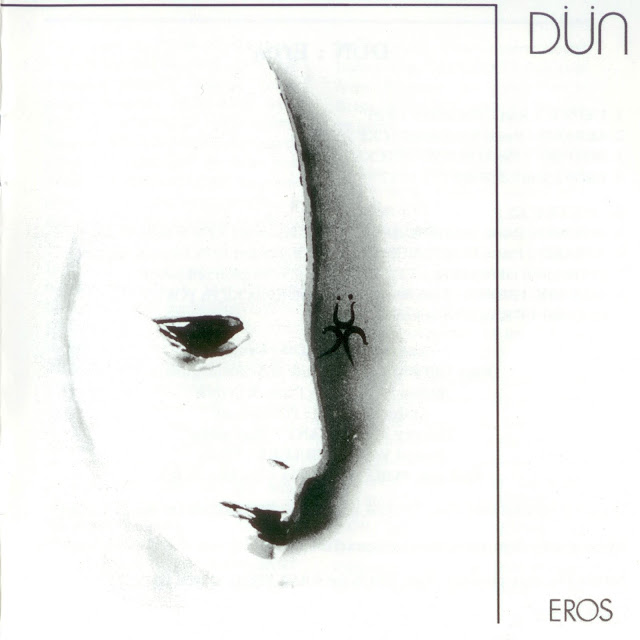
We have spent four days in the studio. One day for the set-up and the soundcheck, and three days for the recording process. We have played two times each song, except for ‘Eros’. There we played three times! One time each day, because this song was a jam with a crescendo, so it was not easy to reach the accurate duration. It was all recorded live! Very few re-recording: some flutes, when there are more than one, some guitars (when Jean was using other guitar, like acoustic guitar etc.). We have spent more time for the mix of the LP.
The album was self-released. What did the distribution look like? How many copies did you press?
Dün: The album was only sold at the end of the shows. We have pressed 2000 copies, I think. There was no distribution. We were very good as musicians, but a disaster commercially, haha.
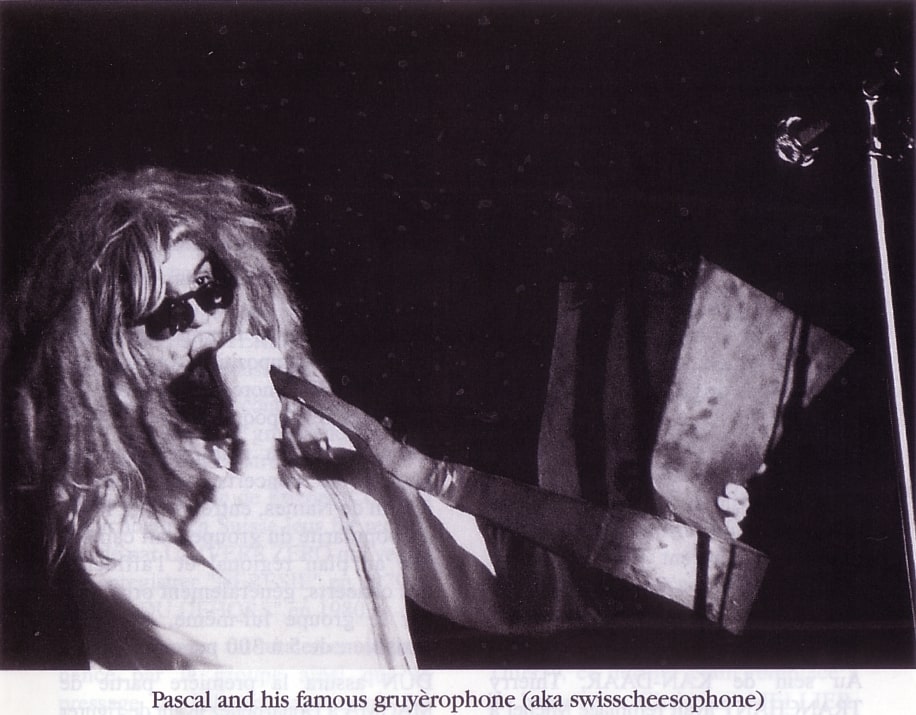
How pleased was the band with the sound of the album? What, if anything, would you like to have been different from the finished product?
Dün: We had a good idea how we wanted to sound. The monitors at the end of the seventies were a complete disaster. When you have a flute and a classical percussions in a band and you play loud (probably very loud) it’s a mess! We decide that the only way is to have our own monitor system. Eric Vincenot, from Nexo has designed a complete custom monitor system. Each musician got a desk, where he made his own mix, plus amps and cabinets (custom wedges for everybody, except for keyboard, a 2+1 system in 4 active ways, and the bass, a 3 cabinets system). The sound was great on stage, and we got the same sound during the rehearsals. The band worked as a democracy. Everything was discussed before entering the studio. The mix for the album was made by Pascal, who is in fact the producer, Etienne and me, Thierry. I remember that we wanted to be as close as possible to the sound on stage and upgrade it by the possibilities of the studio (like grand piano, it was impossible to have a grand piano on stage with a good sound, several flutes, or some strange effects). Our music was not linear. There were a lot of breaks of different atmospheres. It worked like a series of pictures. Some parts need different points of view, but the series needs a mutual colour. Pascal had a lot of ideas. The difficulty was to keep distance to maintain the mutual sound shape of the band. It was not easy and the mix took time. I think it actually took five days. We reached the aim and we have maintained the energy of the music. We are happy with the sound of the album. The different mastering of Soleil Zeuhl was great also.
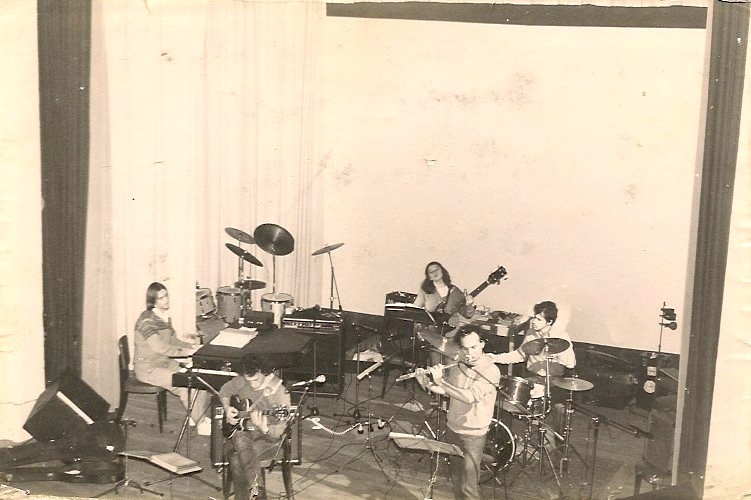
Was there a certain concept behind the album?
Dün: To play the music we all love.
“European advanced electric music”
How would you describe your sound?
Dün: European advanced electric music with a powerful rhythm section, complex harmonies, rich melodic lines and unusual structures.
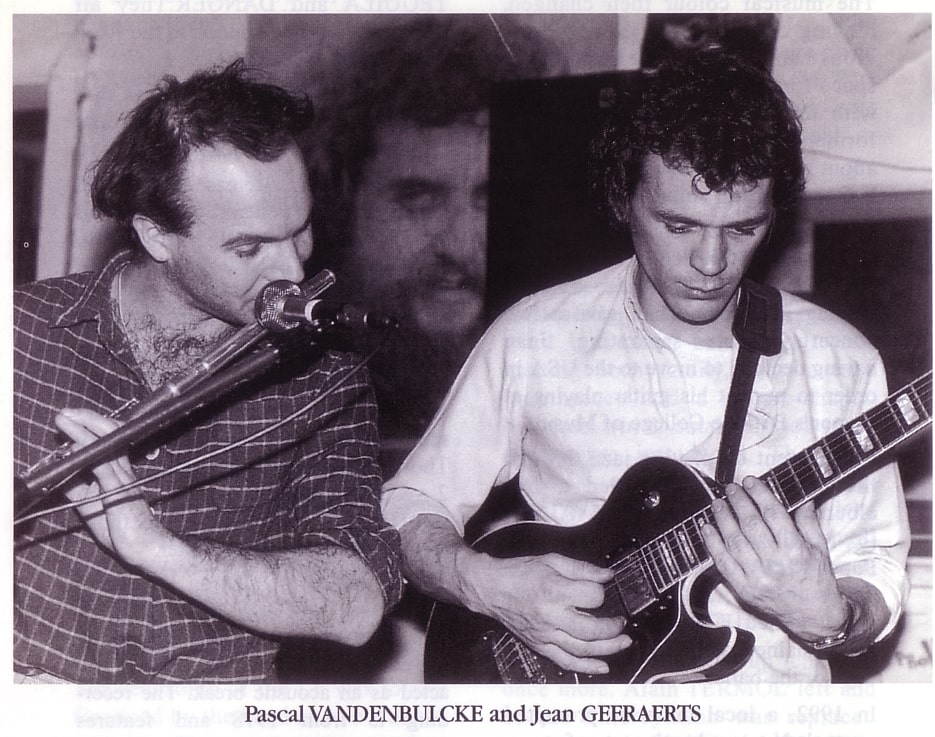
Would you share your insight on the albums’ tracks?
Pascal Vandenbulcke: ‘Arrakis’ was a planet of sand in the novel Dune by Franck Herbert. This piece was inspired by the group Magma. It’s a step-by-step construction that begins calmly and intensifies until the end. ‘Bitonio’ is a nod to the minimalism of certain pieces by Stravinsky and the Second Viennese School: Berg, Schoenberg.
Jean Geerearts: The title ‘Éros-Érosion’ speaks for itself, the wear and tear of love… Acoustic Fremen – The Fremen are the inhabitants of Arrakis in the Dune novel. The spice is the fuel (the drug) of the Fremen.
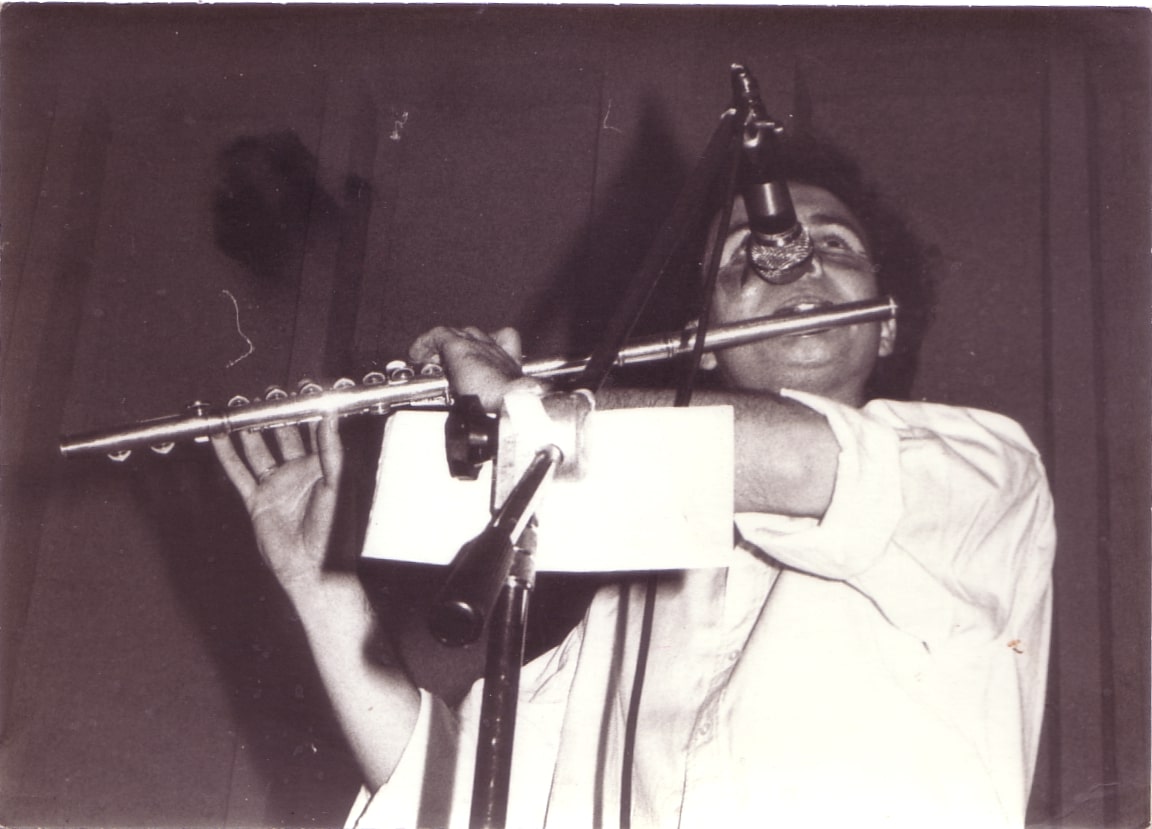
Did the band tour to support the LP?
Dün: Not really, just some very few shows. A real tour was impossible to imagine in France for this music. Only Magma could do that, and even that was small tours.
Where and when was your most memorable gig?
Laurent Bertaud: Festival of Carquefou. Our first “big stage” (with a large audience of more than 5000 people), that we shared with many French rock stars!
Thierry Tranchant: A big festival in 1978, some months after the beginning of Dün, our first big stage, named Rock and Folk festival. Another concert for the same organisation, with a rebirth of Dün, 40 years later in 2018. And a concert in a 500 people club in Nantes, in 1980. It was an ex chapel, with two balconies, all around the stage, a lot of friends in the public, in front, sides and back. Difficult to be concentrated in this configuration, but a lot of emotions.
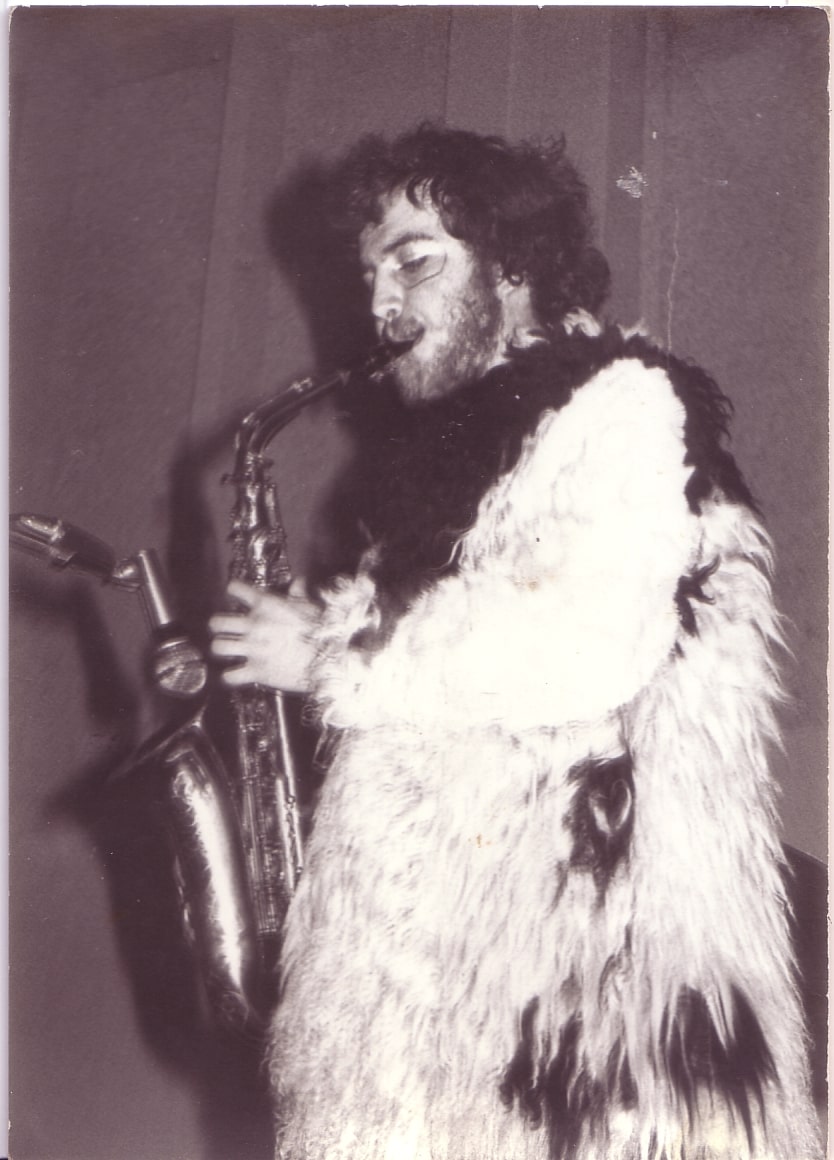
Bruno Sabathe: All the concerts were moments of happiness because we played new and not widespread music.
Jean Geerearts: La Baule 44 concert.
What happened next?
Dün: There was no income in Dün, so everybody had to play in other bands to earn money and at the end the schedules were impossible to synchronize.
Laurent Bertaud: I moved forward in studying drums and harmony.
Pascal Vandenbulcke: Very few concerts overall and recording of the album in 1981 in Switzerland.
Bruno Sabathe: Alas, we are only musicians, not concert vendors! And everyone went to earn a living thanks to more “saleable” music!
Jean Geerearts: A few shows here and there for two years.
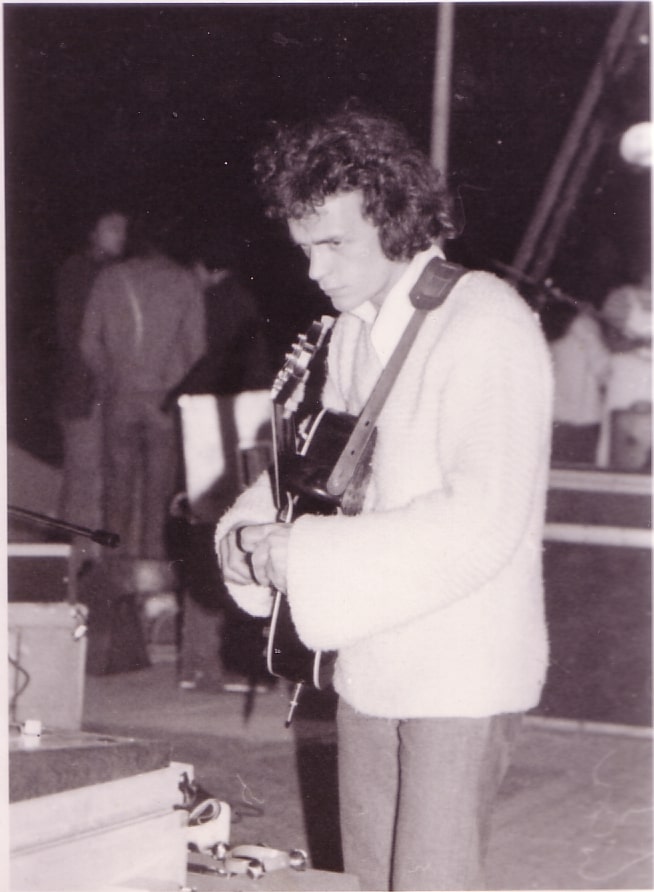
Would appreciate it if you can share with us what you do after that? Feel free to share about any musical involvements with us.
Laurent Bertaud: After Dün, I started to perform around the world with a cover band called Liverpool (we did about 1500 concerts) until I signed my first deal in 1987 with Polydor (a major record company). I moved to Paris and decided to focus on songwriting. I discovered new technologies that help me a lot. I could understand harmony, but was not able to apply it on keyboard. The computer has been my friend! I continued to work along these lines until I got my first contract as a composer for a movie. Writing for movies, and animated series was my main activity for the next 20 years. Before the end of this period, I created my publishing company. Six years ago, I partnered in a recording studio and started producing young artists. This became my favourite activity.
Thierry Tranchant: After Dün, I stopped playing bass and I got hired as FOH sound engineer for Joan Baez while on European tour. After this, I created a PA rent company (Melpomen), and continue my life as a sound engineer on tours with several artists. My longest collaboration was with Stephan Eicher, a famous singer and composer in Swiss and France. I was also in charge of the PA system, and the design of them, for several big festivals in France, Morocco, Senegal, etc. (main stages on Hellfest, Solidays, Printemps de Bourges, Transmusicales, Route du Rock, Black Word Festival, Mawazine, etc.), and the design of the house system in the Stade de France, but nothing as musician. In 2002, Melpomen and SSE Audio Group found a group, based in UK, France and later Morocco. My experience in Dün was very important for this second part of my professional life. I have learned how the mix is important for the music, and how important is the musical relationship between the musicians. And how each show, played with the same parts, can be different and needs a different mix. During a tour, if you’re not happy about your mix, don’t look after a problem in your desk, see the stage and the musicians! You are not in the same mood, move your mix. As Laurent said: “think music before the technique”. That’s right! I’m also one of the founders of the Nexo company, so that explain why Nexo designed a system for the band. I have collaborated with the R&D during years after Dün. At the end of the seventies, the common theory was that the monitor system needs to have an aggressive sound and only medium range. Nexo don’t think that, Dün needs exactly not that, …we decide that the custom monitor system needs to be a full range system, with a rich sound and a flat curve. And it works very well. The same concept, ten years later, was used for the Nexo PS cabinets series, they are the first stage monitor cabinets designed like that, and it was a huge worldwide success. Seven years ago I restarted my bass playing.
Pascal Vandenbulcke: I started playing jazz and met other artistic fields such as theatre, dance. And we created with Jean a collective of musicians called ‘Spiritual Nevrose’. From 1986 to now, numerous projects and international tours with flamenco groups, salsa, musicals with the company Theatre Nuit (Nantes), hindo-jazz with the group Mukta, and the pianist Didier Squiban.
Bruno Sabathe: I’ve been a pianist for 45 years. I played in bars in front of 25 people and on festivals in front of 50,000 people with the same joy of offering a good time to the spectators by accompanying famous people (Jean-Jacques Goldman, the band named Tri Yann, etc.) or totally unknown, whatever.
Jean Geerearts: Concerts with Gildas Boclé (bass player for Pat Metheny) and pianist Philippe Duchemin. Concerts with conductor Pierre Porte (L’école des Fans, Jacques Martin). Show France Inter support of Baden Powel with the quartet of Bertrand Renaudin, studio guitarist in Buddy Rich’s Big Band in Boston. Jazz Shows with Henri Texier, Jean Loup Longnon, Guy Bodet, Bob Sellers, Francis Bourrec, Bertrand Renaudin, Pascal Vandenbulke, J. M. Bellec, Philippe Lacarière, Arnaud Matei, William Leconte (pianist of Jean-Luc Ponty)… Numerous shows in cabaret, festivals, Uzeste Festival, theatre of Suresnes and Francofolies (Grand Théâtre) with Vanina Michel (show Prévert)… Concerts with Transit Zone with saxophonist Francis Bourrec. Big-Band ‘Spiritual neurosis’ several shows including in the auditorium of Nantes with an orchestra of 12 musicians. Concerts with the Brazilian band Yatrata. A tour in Egypt (Scènes Alliance française) with Vanina Michel (Directrice des variétés Edition Salabert). Concert at Consulat de France à Saigon – Vietnam. Concerts with the Big band Transit Zone, latino jazz band…
What’s your definition of “Zeuhl”?
Dün: A music with strange and not easy harmony with a powerful rhythm section. Also repetitive music. Bartok is not too far.
Is there any unreleased material?
Dün: Yes, from the new period.
What are some of your favorite memories from being part of Dün?
Laurent Bertaud: Our first rehearsals, when everything was new!
Thierry Tranchant: Probably the seriousness and imaginations during the rehearsals.
Pascal Vandenbulcke: The creative period, the many festive evenings, the studio in Switzerland and the reunion in 2018 at the request of a collective that had welcomed us 40 years ago.
Bruno Sabathe: To meet again to play 40 years after the formation of the band and realize that nothing had changed: neither the music, nor the musicians.
Jean Geerearts: The first time in rehearsal when Dün’s music was in search of style and sound.
“Think music before technique”
Let’s end this interview with some of your favourite albums. Have you found something new lately you would like to recommend to our readers?
Laurent Bertaud: ‘Magma Live’ – Magma, ‘Roxy and Elsewhere’ – Franck Zappa, ‘Le sacre du printemps’ – Stravinsky. This is not new and personal discovery but “Think music before technique”!
Thierry Tranchant: King Crimson – ‘Discipline’, Magma – ‘Live Album’, Weather Report – ‘Heavy Weather’…
Some new albums:
Mederic Collignon: ‘A la recherche du Roi Frippé’, an album consisting of King Crimson covers. In place of the two guitars, two strings quartets, plus drums, bass, piano and trumpet. All traps on earth: ‘A Drop of Light’. A fantastic jewel. ‘Confessions’ by Philippe Katerine.
Pascal Vandenbulcke: The trio E.S.T, the flutist Magic Malik, the last album of Philippe Katerine.
Jean Geerearts: All Weather Report, most ECM albums. Nothing new really.
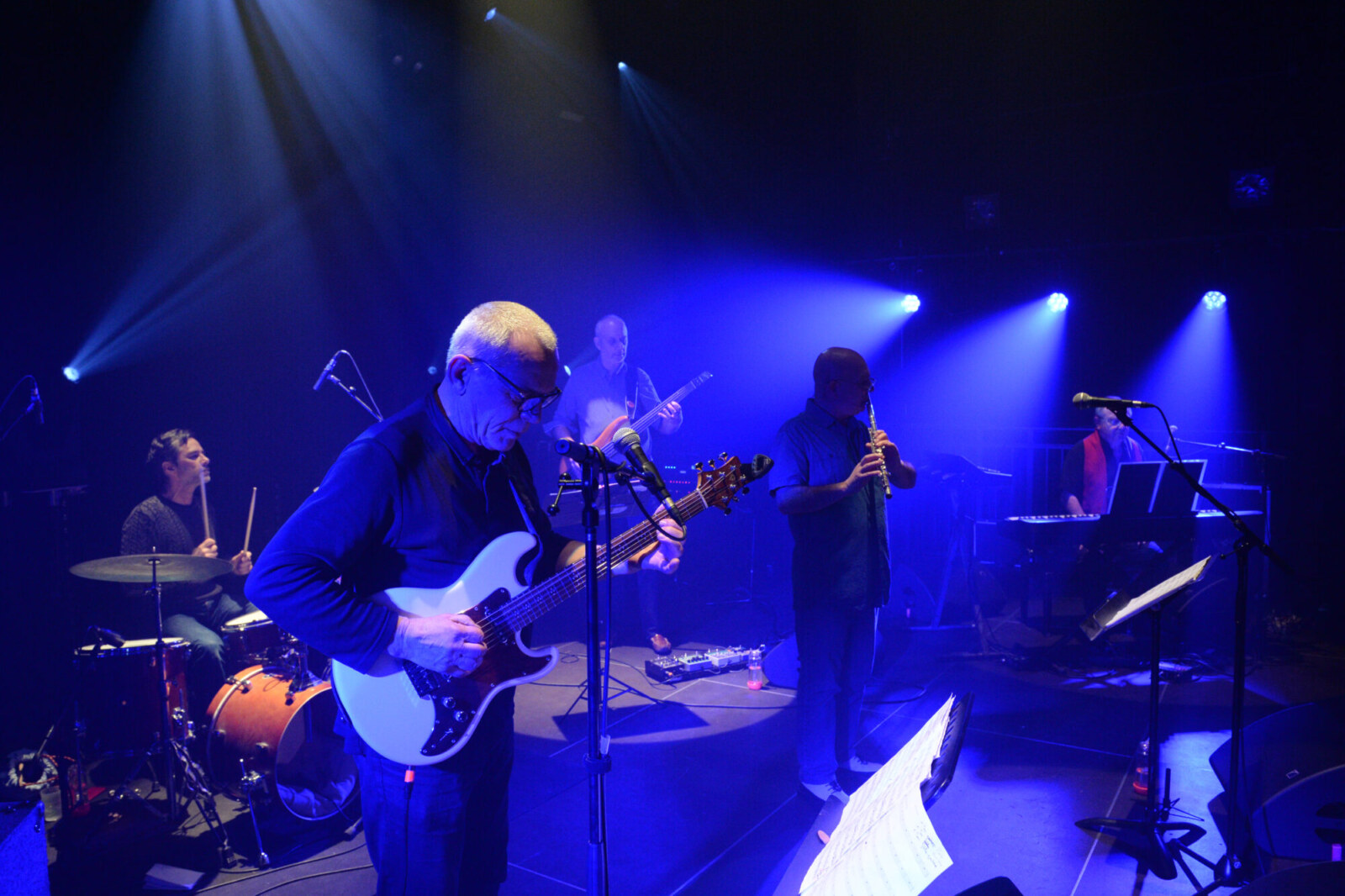
What currently occupies your life?
Laurent Bertaud: Songwriting, producing and family.
Thierry Tranchant: I’m retired for a few months now (I am a lucky man regarding what happened to the world). I play music with my old fellows from Dün, built my home studio, and have a family life.
Pascal Vandenbulcke: Globalization, ecology and fortunately still music!
Bruno Sabathe: The piano. To accompany singers, choirs, to create songs, to write choruses, from piano solo to big band orchestra, from musical humor to plays, from silent film to rhythm and blues, etc. In short, to make music.
Jean Geerearts: Harmony in general, composition and vegetable garden.
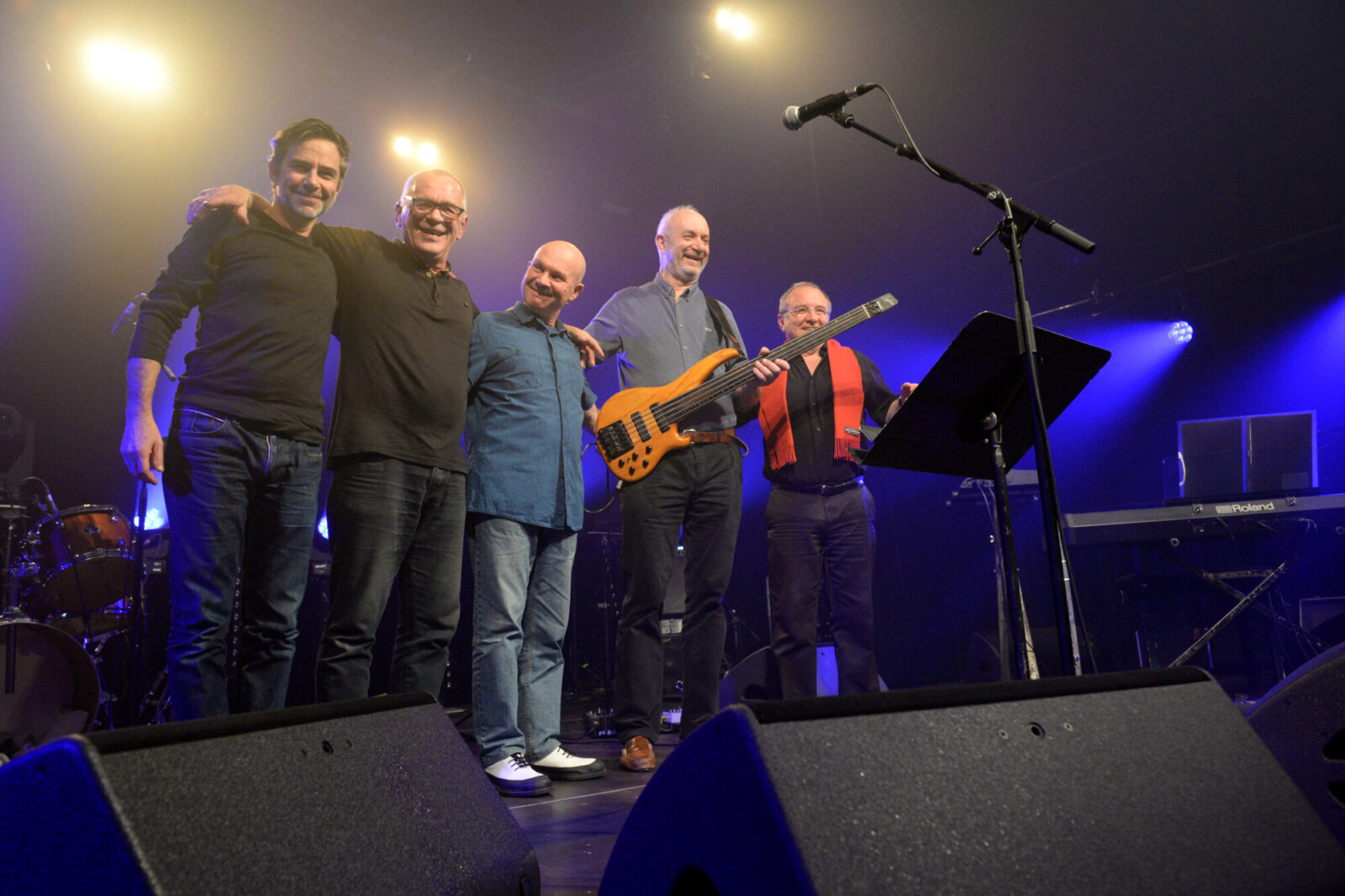
Thank you for taking your time. Last word is yours.
Laurent Bertaud: Music is definitely the best medicine for the world.
Pascal Vandenbulcke: I wish to young musicians a lot of courage, as well as the other inhabitants of the planet to face the many pitfalls that the future holds for us.
Jean Geerearts: May this time give us back great inventive musicians who play with their fingers and beautiful acoustic works not mounted by computer.
Klemen Breznikar
Dün Facebook
Soleil Zeuhl Official Website

